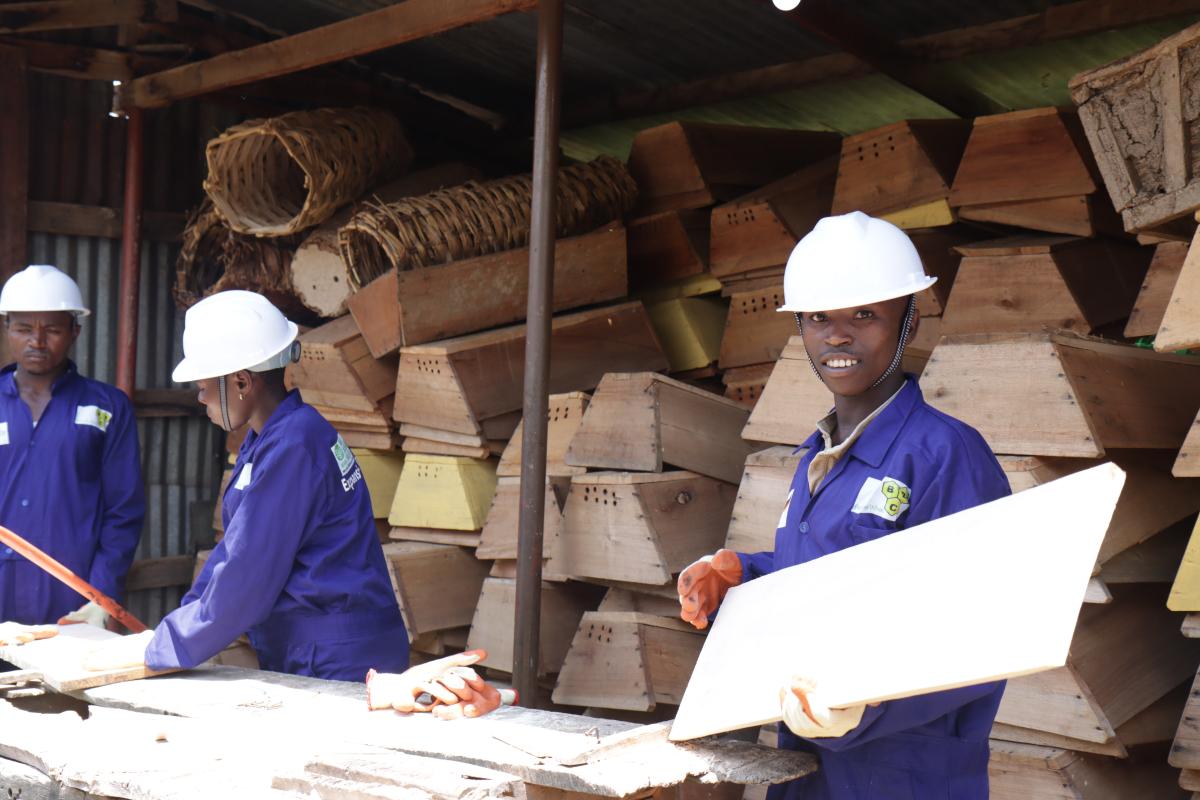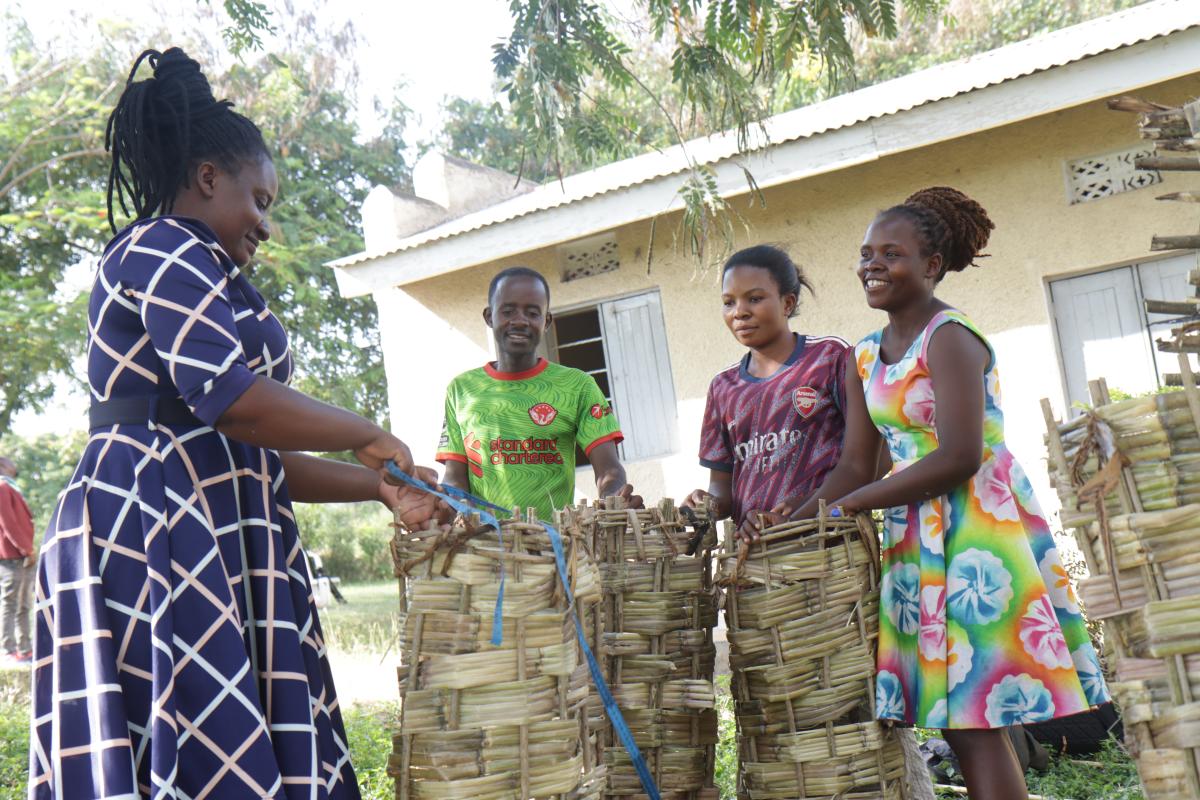Youth empowerment through beekeeping in Uganda
To improve decent job creation in the
agriculture and green economy sectors, youth from the districts of Kasese,
Bunyangabu, and Ntoroko have received training on beekeeping from Bunyangabu
Beekeepers Cooperative (BBC). One of the results of the Social Protection
portfolio focuses on decent employment creation and enhancement for youth and
women in agriculture, tourism, and the green economy and aims to increase the
contributive capacity of workers for social protection schemes.
Apiculture is a crucial component of
livelihood diversification in Uganda since it
can supplement household incomes, food, and medicine. Though still with an enormous
potential for employment, beekeeping remains largely
untapped, especially among the youth; amidst a
dire situation of women and girls in the working age bracket continually facing rising level of
unemployment.
The apiary training in the 3 districts
targeted 80 youth with 70% female and 30% male. It among others imparted
technical and entrepreneurial skills to the participants such as; hive making
from local materials, apiary establishment and management, honey Harvesting,
post-harvest handling of honey and other bee products, and the cost-benefit
analysis of Beekeeping.
The Head of Training
and Fieldwork, Bunyangabu Beekeepers Cooperative, Nkule Edison said that they
are committed to continuously building the capacity of the youth in beekeeping
and value addition to its products so that they can meet the readily available
market needs, in Uganda and beyond. He added that apiary relatively requires
low start-up costs, low labour requirements, low maintenance costs, and minimum
requirements for land ownership. “These render beekeeping an attractive
economic pathway to get out of poverty for the rural poor, particularly women
and young people who are constantly challenged by limited resources”, said
Edison.
Baluku Mohoza, one
of the trainees from Kasese district said that he is going to fully utilize the
skills he acquired from the training to become an active beekeeper, generate
income for his personal needs, and contribute to environment conservation. “Bees
pollinate our crops, which promotes food security. I have also learned that
planting more trees is a very good practice in apiary, in doing so, we will be conserving
the environment”, added Baluku.
Another trainee,
Muhindo Mariam from Kabarole district plans to make 15 more hives by the end of
the year after getting practical skills to make beehives from local materials;
bamboo sticks, reeds, banana fibre, and cow dung. Mariam plans to also share
the skills she acquired with other youth in her community, having learnt about
the benefits of beekeeping from the training.
According to a report released by the
Ministry of Agriculture, Animal Industry and Fisheries in 2023, Uganda produces
4,000 metric tons of honey per annum and approximately 1.2 million people are
involved in beekeeping. The national and regional honey production remains
below the potential supply levels with beekeepers harvesting almost less than 1% of the estimated
production potential of
500,000 metric tons. The global demand for honey is estimated at 1.8
million metric tons, with a market value of USD 7.8Bn (Uganda Investment
Authority).
Bunyangabu Beekeepers Cooperative (BBC) currently produces 30 – 35 tons
of honey annually, which increased from 20 – 25 tons following the opening of
honeycomb community collecting centres in the five districts of Kasese,
Ntoroko, Kabarole, Bundibugyo, and Bunyangabu.
All the honey produced by BBC is consumed locally in the Ugandan
market. The cooperative got access to
the European market but opted out due to limited productivity to meet the
required supply of 4 metric tons per month.
This required increasing productivity to 70 – 75 metric tons per year if
they were to sustain supplying both the local and international markets.
The partnership
that Enabel has with Bunyangabu Beekeepers Cooperative (BBC) recognizes the
role of the youth in taking up apiculture as a business and a highly valuable
enterprise that can be effectively transformed into commercial farming for
money generation and environmental conservation through the use of
climate-smart initiatives.
Dernières actualité de ce projet
Pas d'actualité


